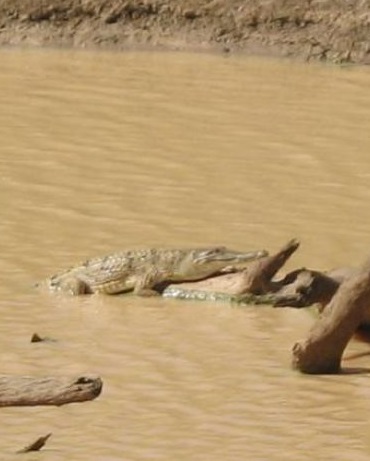DNA croc check coming
 Researchers in the Northern Territory are working on a way to use DNA to detect saltwater crocodiles in the water.
Researchers in the Northern Territory are working on a way to use DNA to detect saltwater crocodiles in the water.
“The idea is that it could be used as a complementary monitoring method,” Alea Rose, a researcher at Charles Darwin University, has told the ABC.
“Where people that are going out spotting or trapping can also take a water sample, just to make sure that there's definitely no crocodile there.”
Rangers currently use spotlighting, harpooning and baited traps to remove hundreds of crocodiles from Darwin Harbour and other waterways each year.
Ian Hunt from NT Parks and Wildlife’s crocodile management team says the DNA detection method might help, but says it will not replace current methods.
“There's no substitute for actually getting out there and physically being on the waterways and seeing the crocodiles with your own eyes,” Mr Hunt said.
Similar techniques have been used to confirm the presence of endangered wildlife in waterways around the world.
“We do know from other studies on sawfish, for example, that they can identify [the presence of] them within quite large billabongs … using the [environmental] DNA technique,” Mr Campbell said.
The Charles Darwin team has already built a probe and tested it in controlled laboratory conditions.
“We've actually run a trial where we've put a crocodile into a tank and then we've taken water samples over time to look at when we can first detect crocodile DNA, or if we can detect it,” Ms Rose said.
The team is planning trials in Top End waterways.
“The next stage now is to go out there and gather water samples in the wild and combine that with spotlight surveys to see how effective the technique is in identifying crocodiles,” Mr Campbell said.







 Print
Print